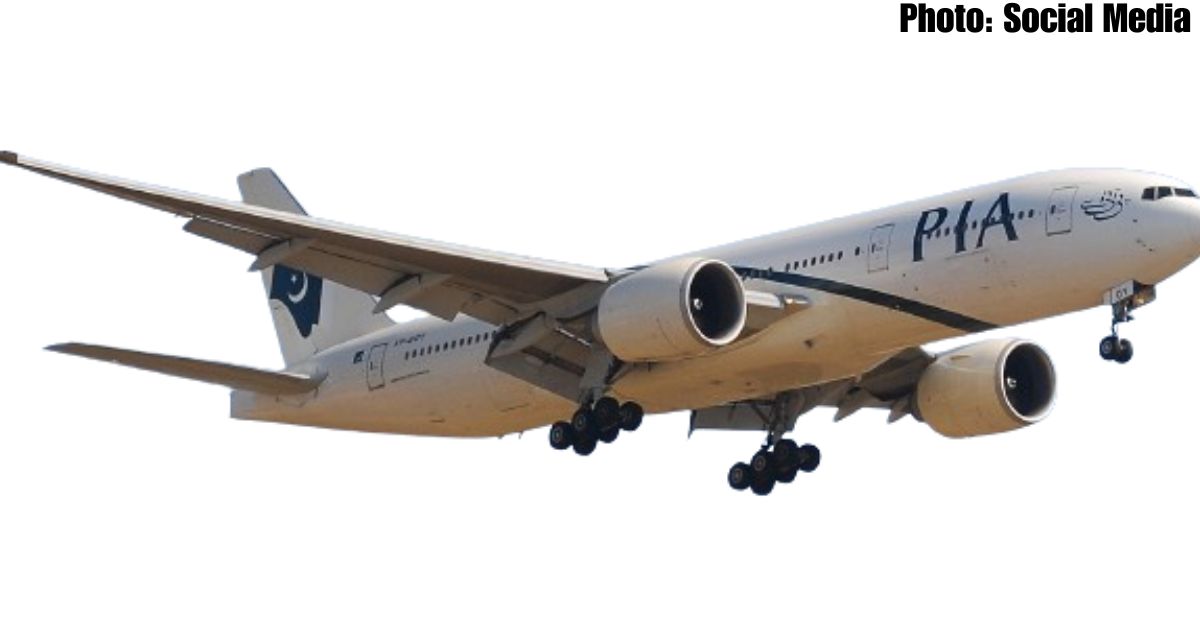Pakistan International Airlines (PIA) is set to undergo a privatization process by inviting interested parties from global firms to acquire a significant 51% shares in the airline.
The Privatization Commission has opened the bidding process for interested parties to acquire 51% of Pakistan International Airlines (PIA) shares. The bidding process will start on June 3, 2024.
The successful bidder will not only gain a significant ownership stake but also full control over the management of PIA. This move signifies the government’s intention to privatize and offload its majority stake in PIA to private investors.
The government of Pakistan has also set specific criteria for companies interested in buying a major share in the airline.
They’ve decided that interested buyers must have a minimum net worth of Rs30 billion (about $100 million).
This decision was made by the Privatisation Commission’s board, led by Privatisation Minister Abdul Aleem Khan. They’ve also created a committee to oversee the selection of suitable bidders.
The government has invited bids for selling between 51% and 100% of PIA’s shares, and the deadline for submitting bids is May 3rd.
To attract potential buyers, the Privatisation Commission has released an Expression of Interest and a draft Request for a Statement of Qualification.
Apart from the net worth requirement, bidding groups must also show a minimum combined annual revenue of Rs200 billion (about $700 million). This is to ensure that bidders have the financial strength to manage PIA effectively.
Why the Government of Pakistan Wants Privatization of PIA
- Financial Challenges: PIA has been struggling with money issues for a while now. This has put a strain on the government’s finances, as they’ve had to step in with bailouts and subsidies to keep the airline afloat.
- Operational Hurdles: PIA’s operations haven’t been smooth sailing either. They’ve had problems with delays, cancellations, and maintenance, which have hurt their reputation with customers.
- Economic Reform: The government wants to shake things up in the economy, and privatizing PIA fits into that plan. They’re trying to reduce their involvement in businesses that aren’t essential and encourage more private-sector involvement.
- Facing Competition: With more private airlines entering the market, PIA is feeling the heat. Privatization could help them become more competitive and efficient to stay in the game.
- Financial Stability: By handing over PIA to private investors, the government hopes to make the airline financially stronger. Private owners might run things better, manage costs well, and find new ways to make money.
- Modernization Goals: Private ownership could bring in fresh ideas and investment to upgrade PIA’s planes, facilities, and how they work. This could mean better service, safety, and overall performance.
- Government Relief: Privatization would take some weight off the government’s shoulders, freeing up money that could be used for other important things like healthcare and education.
- More Accountability: With private owners, there’s a stronger focus on making sure things are done right. They’ll be accountable to shareholders and investors, which could lead to better management and decision-making.
In short, the government wants to privatize PIA to tackle money problems, make the airline more competitive, and ensure it’s run better for the long haul.
Effects on Pakistan’s Economy
Privatizing PIA could bring several changes to Pakistan’s economy:
- Better Efficiency: With private ownership, PIA might run more smoothly. This could free up resources and help the economy grow faster.
- More Competition: A revamped PIA could compete better with other airlines. This might attract more visitors and businesses to Pakistan, boosting sectors like tourism.
- New Investments: Privatization could draw in both local and foreign investments, spurring economic activity and creating jobs.
- Less Strain on Government: If PIA is privately owned, the government won’t have to spend as much money propping it up. This could mean more funds for things like healthcare and infrastructure.
- Better Service: A privately-run PIA might provide better service, making Pakistan more attractive to travellers and businesses.
However, there could be challenges too, like potential job losses or changes for PIA employees. Overall, if done right, privatizing PIA could be a positive move for Pakistan’s economy.
